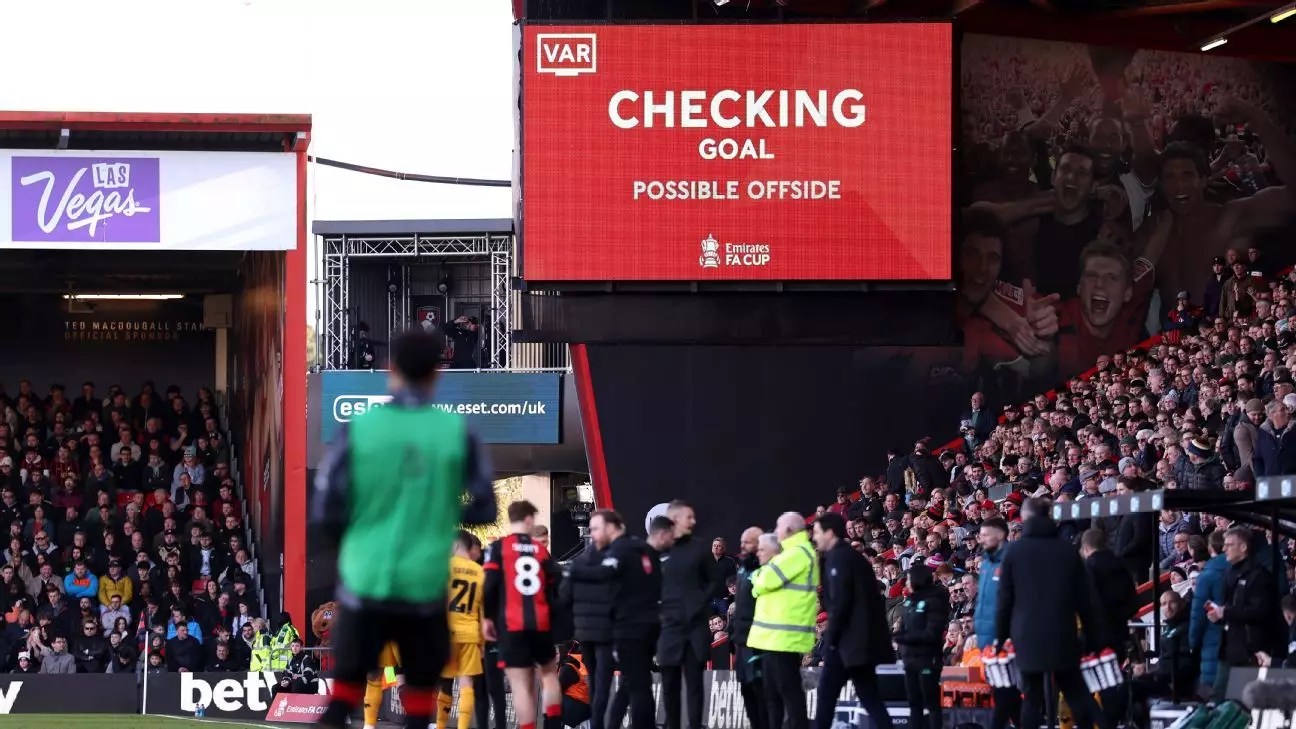In recent years, the implementation of Video Assistant Referee (VAR) technology has revolutionized match officiating, promising greater accuracy and fairness. Yet, as Howard Webb hints at a possible expansion—considering the review of yellow cards and corners—the game stands on the cusp of a new era. While current VAR use is confined mostly to critical moments like goals, penalties, and clear red cards, an extension into reviewing yellow cards and even corners could profoundly impact gameplay. Such enhancements would reduce erroneous decisions that often influence a match’s outcome, but they also introduce new challenges regarding subjective judgment. Deliberating on whether VAR should oversee these “smaller” decisions reflects a desire to leave no stone unturned in pursuit of justice. However, it also demands caution; expanding VAR’s scope risks slowing down the rhythm of the game and over-relying on technology at the expense of human intuition.
Webb’s openness to broaden VAR’s functions signifies a recognition that the technology, while powerful, isn’t perfect. The possibility of accurately correcting misjudgments about corners or yellow cards exemplifies the ongoing effort to fine-tune the system. Yet, this process must involve careful evaluation of the game’s flow and emotional impact on players and fans alike. It’s tempting to think that more review opportunities automatically lead to fairer outcomes, but football is as much about human passion and unpredictability as it is about rules.
The Ethical and Societal Dimensions of Officiating
The modern game must also grapple with the darker side of professional officiating—online abuse and physical confrontations. Webb’s candid reflection on the violence and hostility faced by referees illuminates a societal problem that extends beyond the football pitch. Match officials are increasingly targeted with death threats, hate messages, and even physical violence, revealing a troubling disconnect between supporters’ passion and respect for the officials’ essential role.
This toxicity not only threatens the safety of referees but also jeopardizes the integrity of the sport itself. Football, fundamentally rooted in communal joy, competition, and tradition, risks succumbing to the corrosive effects of social media’s anonymity. Webb’s stance condemning abuse as “wholly unacceptable” underscores the need for collective responsibility—fans, clubs, and governing bodies must cultivate a culture of respect. If the game is to evolve positively, it must be underpinned by a commitment to fairness—not just in the rules but also in how we treat those who uphold them.
The Consequences of Disciplinary Actions on Referee Careers
The case of David Coote’s dismissal for misconduct highlights the precarious nature of refereeing careers in the modern game. Webb’s acknowledgment that Coote likely won’t return to top-tier officiating raises questions about accountability and the standards expected of referees. While mistakes are part of any human endeavor, inappropriate conduct—especially derogatory remarks or discriminatory behavior—undermines the authority of officials and can tarnish the sport’s reputation.
This incident reflects broader issues within the culture of football officiating: the tension between maintaining high standards and navigating intensely scrutinized environments. As technology advances and the pressure to perform intensifies, the potential for misconduct escalates. Proper education, transparent disciplinary measures, and robust support systems are essential to nurture referees who can uphold the integrity of the game, both on and off the pitch. The football community must recognize that fair play extends beyond the field, encompassing the behavior of all involved—players, officials, and fans alike.
In contemplating these developments, it becomes clear that the future of football’s officiating system hinges not just on technological sophistication but also on fostering a culture rooted in respect, accountability, and unwavering commitment to fairness.

